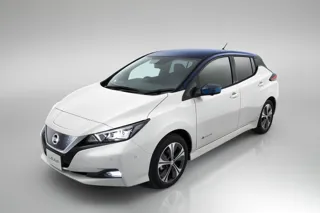Chris Evans, deputy managing director of Rolton Group explores whether businesses should be switching to EV.
An automotive revolution is happening across the UK, led by a massive surge in popularity for electric vehicles (EVs).
The number of EVs on our roads has risen 20-fold over the past three years alone. By 2050, it’s predicted they will account for two-thirds of all vehicles on the road.
UK businesses are increasingly being wooed by the benefits of EVs, with forward-thinking companies considering the pros and cons of investment into EVs now and the potential benefits to be delivered.
A growing number of businesses are introducing EV fleets for employees and as goods vehicles, with around 5,000 electric vans registered in March 2017.
Undoubtedly, environmental targets have been significant drivers for EV uptake by businesses.
The Government has pledged more than £600m by 2020 to “support the uptake of ultra-low-emission vehicles”, including £38m for public charging points.
The UK is one of the 13 members of the Zero Emission Vehicle Alliance which aims to make all passenger vehicles “zero-emissions” by 2050.
Moreover, in July, the Government announced it would outlaw the sale of all new sole-powered diesel and petrol cars and vans from 2040.
If this was not incentive enough, there are significant financial attractions to switching to EVs.
The Government offers a grant of £4,500 towards the cost of a standard EV and £500 towards a standard charging point.
In addition, it’s estimated EVs save around £100 per 1,000 miles in fuel costs compared to a petrol or diesel equivalent.
EVs are also exempt from vehicle excise duty (VED) and the case becomes more compelling for businesses operating in central London.
EVs are eligible for congestion charge exemptions and discounts. Recent innovation around battery capacity and range now make EVs a viable option.
With increasing numbers of commuters using EVs, installing charging points at workplaces could be a valuable benefit for employees, boosting recruitment and retention.
Nevertheless, there are several practical considerations for businesses before they make the switch from pumps to plug-ins.
Plugging in remains challenging for EV drivers, both locally and nationally. There is no cohesive UK-wide strategy for EV charging, resulting in many different charging facilities and some locations being far better served than others.
The £40m Government investment towards charging infrastructure for Bristol, London, Milton Keynes and Nottingham is a far cry from ensuring the whole of Britain has an EV future.
Businesses also need to assess the condition and capacity of their electrical infrastructure to ensure it can deliver EV charging without compromising their operations, including considering how they are going to cope with peaks in demand.
There is a significant opportunity for localised energy generation and storage measures.
Off-grid power supply, such as photovoltaics or wind turbines, would generate extra power, secure a company’s future energy supply and contribute towards its corporate social responsibility targets.
Local energy storage would enable both the management of peak power demand from EV charging on-site and could also be used to provide grid balancing services.
The biggest obstacle to EV uptake in the UK, however, is the energy infrastructure as a whole and its ability to cope with expected increased demand created by EVs.
Our ageing national grid is constantly being stretched to its limits and EV charging could well be the straw that breaks the camel’s back.
Peaks in demand, higher EV uptake in certain areas and lack of infrastructure investment have the potential to create imminent and significant local level challenges – and this is very bad news for UK businesses.
The Government must take the lead in creating a holistic, UK-wide plan for a robust energy and transport infrastructure to meet our future needs, or risk the EV dream turning into a nightmare.
Rolton Group is a team of multi-disciplinary engineering consultants which recently gave advice to the Energy and Climate Change Committee on post-Brexit energy policy.



















Login to comment
Comments
No comments have been made yet.